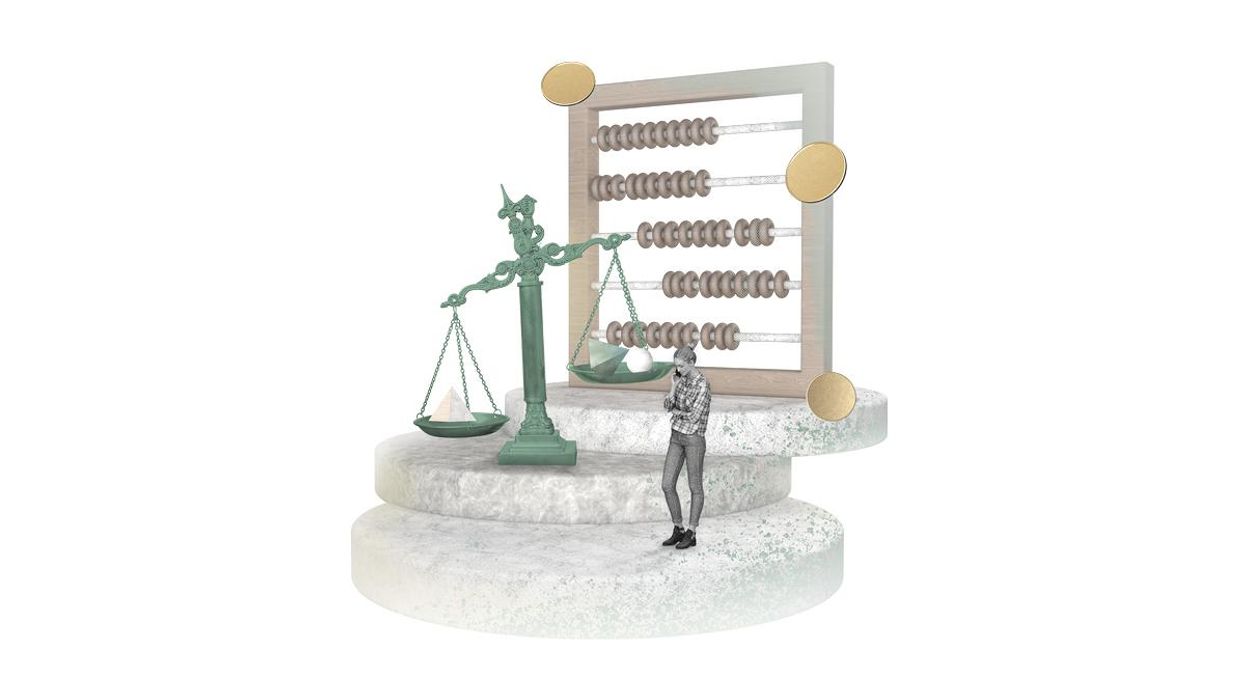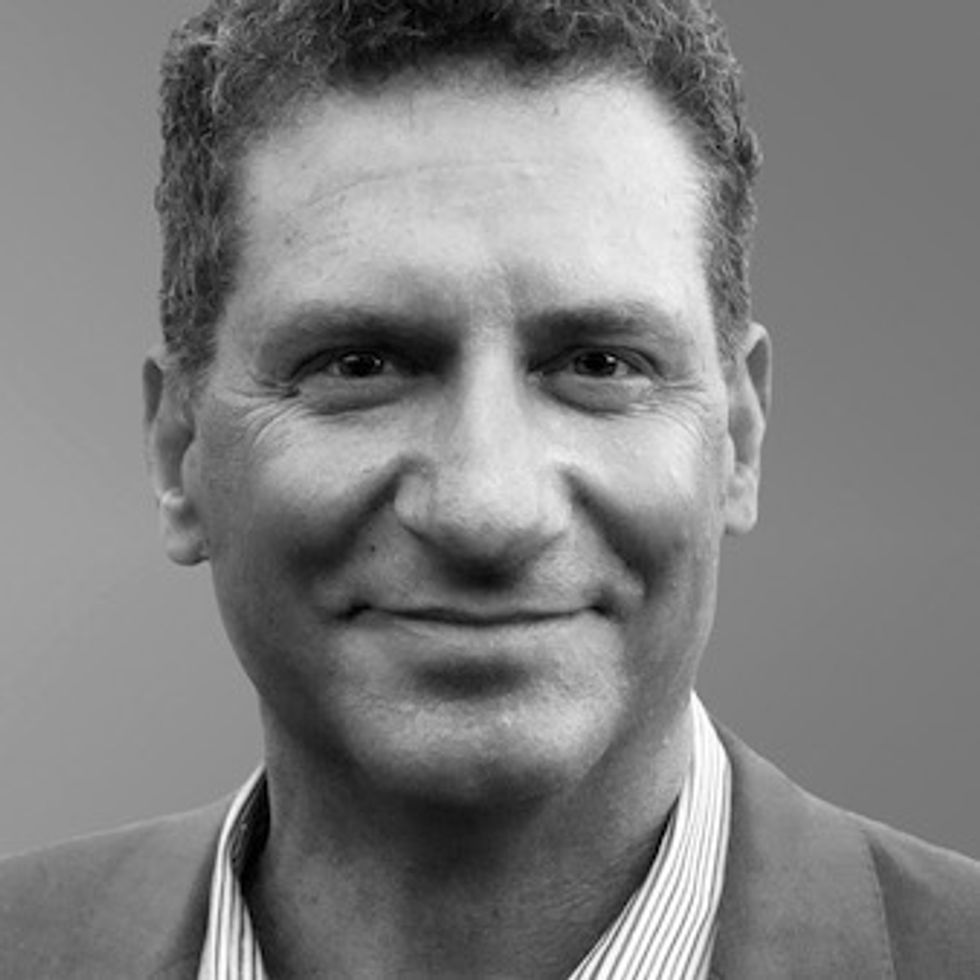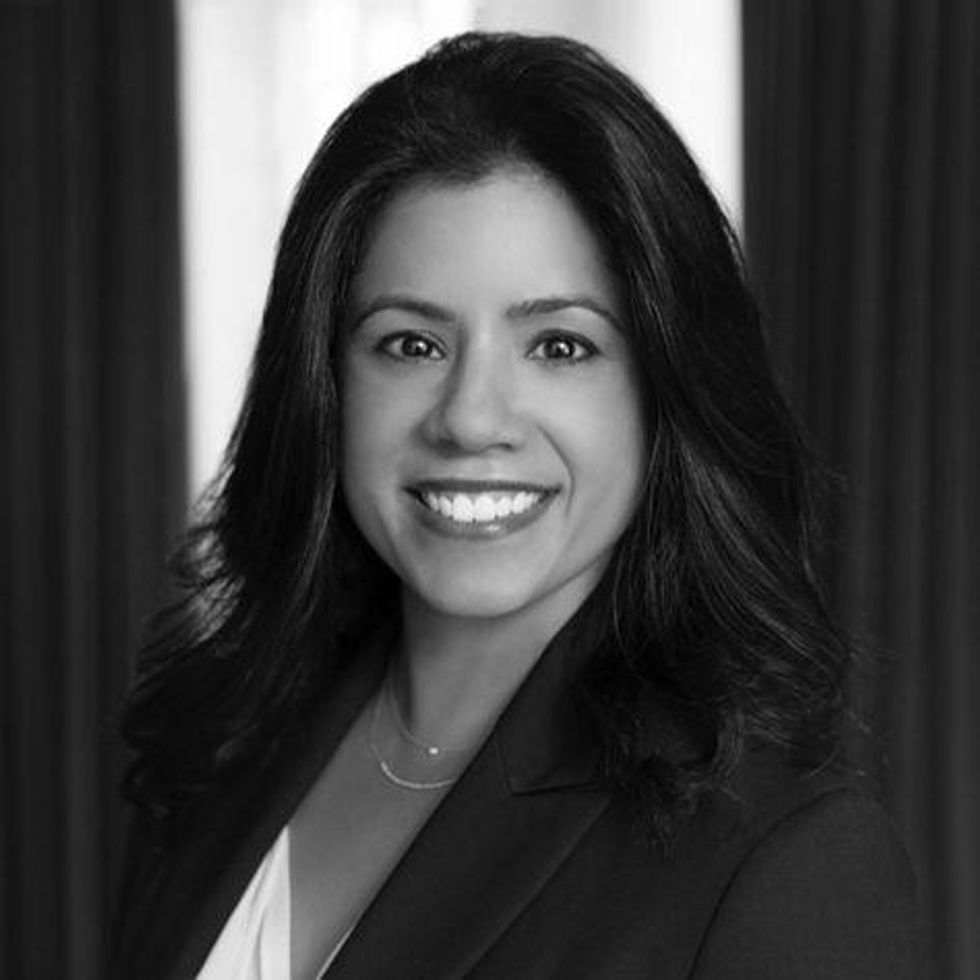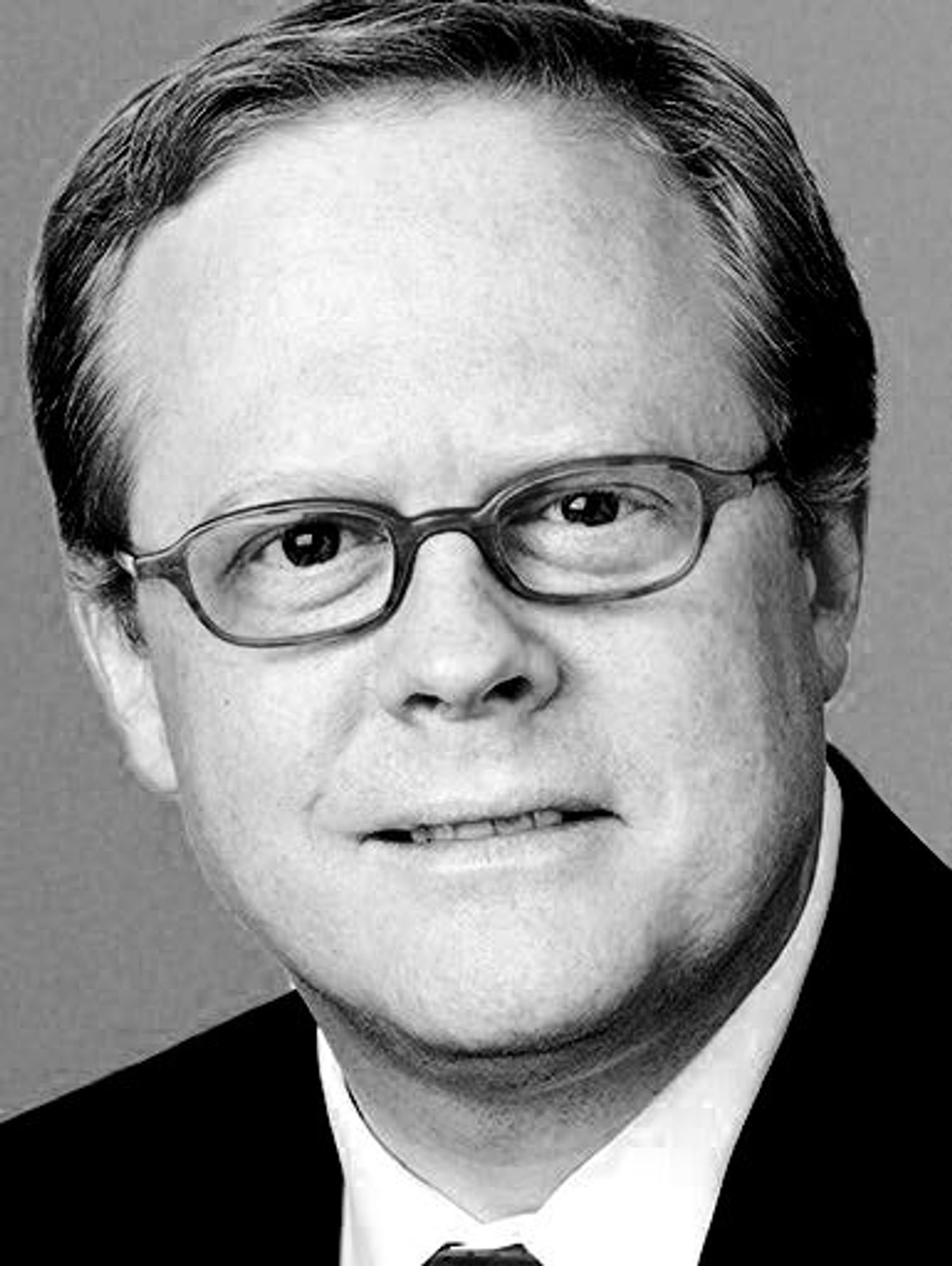
Episode 3: Will there be a recession?
Listen: As record inflation meets rising interest rates, we’re examining the role of the US Federal Reserve in protecting the economy from recession in the coming months.15 years ago the world faced the largest financial crisis since the Great Depression, brought on by a perfect storm of risky lending, mortgage defaults, and failures of financial institutions. In January 2008, the Fed made significant cuts to interest rates to stimulate the economy. Those rates have stayed historically low since then, but that’s rapidly changing.
Transcript: Season 3, Episode 3: Will there be a recession?
Disclosure: The opinions expressed by Eurasia Group analysts in this podcast episode are their own, and may differ from those of Citigroup Inc and its affiliates.
Rob Kahn: Rising rates, of course, have powerful effects on households, and they can do it through a number of channels.
Steven Wieting: There have been really nasty surprises in 2022, already setting the case for recovery back. But broadly speaking here, again, a careful Federal Reserve and a little bit of help from the world's producers, we think that there is absolutely a case to be made here that a recession is not inevitable in this year or next.
[MUSIC]
Lucy Eve: Welcome to Living Beyond Borders, a podcast from Citi Private Bank and GZERO Media. On this program, we examine global risks and opportunities from the angles of both politics and economics. I'm Lucy Eve, senior strategist of geoeconomics at Eurasia Group.
It's hard to believe it was now 15 years ago, the start of the largest global financial crisis the world had experienced since the Great Depression. A perfect storm of risky lending, bankruptcies, mortgage defaults, and failures of financial institutions deeply strained the economy in the US and nearly everywhere else. With the recession looming, what did the government do?
Well, one of the tools the US Federal Reserve had in its pocket was interest rates and an ability to slash them. In January 2008, the Fed made its largest cut to interest rates in 25 years, and the first emergency cut in rates since 9/11. The cuts didn't stop the great recession, as we know, but the move did help keep the economy afloat. And interest rates have stayed historically low since then, at least until now.
Today we'll be speaking with two experts about what the Federal Reserve does, where interest rates are now, and where they may be going. We're joined by Steven Wieting, chief investment strategist and chief economist at Citi Global Wealth Investments. And Robert Kahn, director of geoeconomics at Eurasia Group. Welcome Steven and Rob.
Steven Wieting: Thank you for having us.
Rob Kahn: Great to be here today.
Lucy Eve: First of all, A lot of people probably have a rough understanding of the Fed and what their mandate is, but it never hurts to remind listeners. Rob, give us a quick overview of what the Fed does, what they have to do with interest rates, and how they impact the economy.
Rob Kahn: Well, sometimes people like to talk about central banks like the Fed as a bank for banks, but it's a little more complicated than that. When Woodrow Wilson in December of 1913 signed the Federal Reserve Act, creating the Fed, he gave it a broad mandate to promote the health of the US economy and the stability of the US financial system. Now, we usually think about the central bank in terms of monetary policy and its efforts to promote maximum employment and stable prices.
But its job goes well beyond that. It's involved in promoting the stability of the financial system, the safety and soundness of individual financial institutions, along with other government institutions to foster efficient payments and settlement, and to support good consumer protection and the development of good rules around that. So there's a pretty broad set of responsibilities that Congress has asked the Fed to do.
But today we're going to be talking a lot about the role of interest rates, and that gets to that first goal that I mentioned, monetary policy to promote maximum employment and stable prices. The Fed's use of interest rates really speaks to that. It's their primary tool, as well as other central bank's primary tool to influence the economy and promote those goals of maximum employment and a stable financial system.
Lucy Eve: Steven, just to round that out, why is watching the Fed so important for investors?
Steven Wieting: Well, the Federal Reserve has a lot of economic power. If you can think about the ability to set short-term interest rates with little or no risk, at levels that are above the returns of economic activity, you can really draw activity down. You can induce a recession if you have to. Similarly, if you can take away all the rewards of sitting in risk-free assets, typically the economy can do a lot better and investing can do a lot better.
So the Fed is ideally a counter cyclical force.
Lucy Eve: Steven, Why did rates stay low for so long and how has that impacted the economy?
Steven Wieting: Well, there are two things. There was the drop in interest rates related to the 2020 COVID shock, the initial flight to safety from investors, the collapse in the economy, and the Federal Reserve working as it could to make sure that we had a rapid recovery from that. All of that is played out and in fact is generally reversed. Then there's also the issue that, if we take a look from the period from 2010, when the global financial crisis was already over, until now, the US policy rate is average 0.5%.
So there's a lot discussion about what the neutral policy rate would be, that sort of thing. But I think we have to, very importantly as investors, over, let's say, a medium term time horizon, a year or two, just think about what the cyclical outlook is for interest rates. Where the neutral rate will be, that sort of question, is interesting. But how fast interest rates have moved, how much the Federal Reserve has changed monetary policy, that's quite relevant to how the economy will change in one year.
The growth rate of the economy is the change in the level. And so, the change in interest rates are going to be very relevant to how the economy grows one year ahead.
Lucy Eve: Now there is a fear that low interest rates can juice the economy too much, but it seemed like we were okay on inflation for a long time. Any idea as to why?
Steven Wieting: Now this is really critical to explain, and unfortunately, it's complicated, so risk finding some difficulties. There's a demand side impact. There's a supply side impact. What seems to be underrated by many, I think, is the impact of fiscal policy, that massive government spending income for the economy. Universal basic income, if you want to call it.
Last year, while labor markets were already recovering, 85% of American households getting checks to spend, that was big. It was unprecedented fiscal stimulus. It supported a very strong rebound and demand in the economy when COVID applied the breaks very, very narrowly to certain sectors. So broad macro stimulus, incredibly large, assisted by both the Fed and again, enabling fiscal policy makers to do that.
This year government spending is down 33% here to date. We're on track for something on the order of a one and a half trillion dollar cut in the size of the budget deficit this year. Very little press comment on that. After tax incomes have fallen, real after tax incomes have fallen. So despite a strong labor market, there is this macro influence that was boom and bust.
Then the other reason why inflation has boomed has really been this change in consumer preferences. This is very subtle and hard to explain, but when you think about it, the cost of a New York subway token or a subway fair has never fallen over a hundred years of history. So you have some sticky prices, despite the fact that subway ridership is down 50%. What went up a lot are products that we've never been that flexible in supplying.
Now cars, used cars, new cars, new trucks, whatever, the demand for vehicles was so large that spending in dollars went up 45% scrambling to buy ever more expensive vehicles, having to settle for a used car. This kind of turmoil in the economy, in terms of shifts in demand from one area to the other, with some sticky prices on the downside and some others, which were bid up like an auctioneer, that has created, again, tremendous turmoil in price. It's very typical of a supply shock. So there is both the elements of a supply shock here and too much demand stimulus. The latter part we certainly think is ending.
Rob Kahn: Much of what our policy makers did with the onset of the pandemic was desirable, easing monetary policy and using fiscal policy to provide a safety net to demand. But what the right amount of it was, we had very little guidance.
Our traditional economic models provided very little of a roadmap for how we should proceed. I think that the Fed was probably hopeful that the disruptions caused by the pandemic would moderate more quickly than they did, people would return to work more quickly than they have, and that that would allow for the economy to adjust in a way that would provide for a quick reduction in inflation and an absence of the kind of pressures we're now seeing.
So while I think he's quite right to emphasize the high level of fiscal stimulus and indeed several years of very easy monetary policy that's producing the imbalances we're trying to address today, it's also worth remembering the extraordinary uncertainty that we did face at the start of the pandemic.
Lucy Eve: Rob, the Fed has raised interest rates and plans to keep raising them. Why now? Is it just fears of inflation or other issues?
Rob Kahn: I think the Fed has signaled that there is a very strong concern about inflation at this point. They, as others, were hopeful in the middle of last year, that inflation was going to come down more quickly than it did. I think they saw into the fall that inflation had not only remained high, but it was spreading beyond the sectors and the industries that had been disrupted by the pandemic to more broadly affect prices.
And when that happens, you run a risk that the whole process through which inflation is created and the whole way in which expectations of households and firms are influenced can be destabilized. We saw that in the 1970s and 1980s, and no one really wants to return to that. We don't think we are. But I think that led to a sense at the Fed that they had to begin to move. Some have also speculated that uncertainty about the reappointment of J. Powell may also have contributed to the timing of that.
But certainly, by late fall, I think there was a broad understanding that the Fed had to move aggressively to try and reduce the demand in the US economy and try to help bring inflation down from current high levels. And that's what we're engaged in now.
Steven Wieting: As Rob noted, there are some meaningful differences between where we are now and the 1970s. Again, with contractual prices playing a larger role, domestic services, prices which have a lot of inertia, have picked up some, but they were much stronger and built up over in many years in the 1970s to early '80s. Again, that's something that the Federal Reserve has the power now to head off.
What we really do want to ask though, is that when you've lost your way on the road, when you've really become lost and you need to find your way on track again, and that's how the Federal Reserve feels about the easing of the past year when inflation broadened out and the economy was very, very strong, the chance of actually getting even more lost is there, and overcorrecting in policy and addressing things that the central bank can't control.
So if we see a demand downturn, if we see slowing, and we think that we have... Not the 1.4% drop in GDP the first quarter, but certainly slower growth than where we were last year. Forcing demand down to a impaired level of supply really may be a poor trade-off for the economy. It can lead to a really lower equilibrium and even create some caution among producers. So it's trying to find some balance.
This is our own view at Citi Global Wealth, but trying to find some balance between the excessively patient approach of 2021, and suddenly now an approach where the Federal Reserve is willing to endorse market expectations of record tightening in a year's time. And to use the words of Governor Lael Brainard, rapid quantitative tightening, to put all of this and to switch on a dime like this may be overcorrecting the steering wheel if you're going off the road.
Rob Kahn: All of that suggests to me that the Feds should be cautious. I'd agree with that, and move in steps and really watch the data to see how the economy's responding to the moves they're making. The problem, of course, is that the moves can act on the economy with a lag. There's altruism on monetary policy that it acts with long and variable lags, and therein lies part of the problem for any policy maker.
Steven Wieting: Exactly. I think we could use the reminder about those long and variable lags, which was used by Chairman Powell as recently as August last year. We should remember them as they tighten down.
Lucy Eve: It would be great to turn to what the impact of all this is on consumers. Rob, what are the risks of rising rates here to both consumers and the broader economy?
Rob Kahn: Rising rates, of course, have powerful effects on households, and they can do it through a number of channels. First and foremost, by slowing the pace of growth in the economy, affects household incomes and also prices. Higher interest rates also affecting the value of those consumers' assets and wealth, will affect their spending. And more broadly affects their savings and longer term prospects. So there are many channels to which consumer will be affected by this.
Generally, we do find that overall, higher interest rates, particularly when they lead to recessions, can hit lower income groups disproportionately hard. They can be more profoundly affected by higher levels of unemployment that result, and all of those should be public policy concerns. But generally speaking, given these long and variable lags that monetary policy affects the economy, it's not a very efficient fine-tuned policy tool to try and provide support to particular groups of consumers and the like.
Generally speaking, I think most economists would argue that monetary policy, therefore, should try and affect the overall level of economic activity, the overall level of prices, and that fiscal policy in particular should be more directed at specific groups or at income goals.
Steven Wieting: The 200 basis point rise in mortgage rates this year is not going to leave the housing sector unscathed, and it also won't provide more housing. So it really goes to the story that, again, you can do some demand management, but when there are shortages, again, the real economy is, in many respects, not something that important parts of it, the Federal Reserve can influence.
I think that, again, some of the COVID distortions to the economy will run down housing related durables, merchandise, these sorts of things, look vulnerable to a downward correction, even before rates rose. But this is all an important part of it. I think, again, the drop that we're having in wealth as sustained will also take some of the strength out of demand. Again, it's reasonable for the Federal Reserve to try to do this, to a certain extent. But what's important, again, is that we don't to drive the economy down to a level of activity when it has more potential.
When you think about the total level of employment, and I know the numbers will change very shortly with new reports, but employment levels are down a million and a half people from where we were at the end of 2019. Supply is being affected across the world by not just the war in Eastern Europe, by COVID related issues in China, these sorts of things. And if we look back at history, these haven't been periods of stable prices.
So the central banks I think appropriately look at targeting inflation on a secular basis. Did we come close to our inflation targets over the course of a decade? Certainly, you want some more progress than that, than just in 10-year periods of time. But getting it right over one-year periods of time in the kind of environment that we're in where there's been one external shock after another, is asking too much of monetary policy and may harmful to the economy.
Lucy Eve: Rob, in terms of how the government can react to these price pressures, what can the administration do to combat inflation? And what's the political motivation there?
Rob Kahn: There's not a whole lot the administration can do to combat inflation, at least not in near term. I think generally speaking, when governments run strong economic policies, it supports over the longer term higher growth, more sustainable employment. And lower inflation is possible in that environment. But in a moment like this, administrations tend to get the blame, but have little that they really can do to address it.
I think you're seeing, in the administration, we've seen some trial balloons recently trying to think about what they could do, whether that might mean addressing certain antitrust laws, other restrictions on economic activity that may aim to boost prices. But by and large, those things operate really only on the margins of affecting some particular prices, not the overall level of activity. It really is a monetary policy that is the best, if a blunt tool, for addressing the trend level of inflation over time.
Lucy Eve: In the global picture, is inflation hurting other economies? And what does it mean for US competitiveness or geopolitical power?
Rob Kahn: I think here in the US, we tend to think very much in terms of the domestic consequences of inflation, almost as if the US is a closed economy, it's a very internal discussion. And indeed, as someone who worked at the Fed many years ago, I remember in many debates, the international environment really wasn't given a lot of attention. It was largely felt that the determinants and drivers of inflation were largely domestic.
Now that, of course, wasn't ever fully true. Oil prices, for example, going far back to World War II, and even before, have always played an important role in prices and in inflation. And that's something that's determined in world markets. Many goods are determined in world markets. But by and large, shocks in far away places generally haven't been seen as being important inflation drivers. The value of the dollar in global markets, not so critical to the US, more the other way around, that what would happen in the US could have very powerful effects elsewhere in the world.
I think that's changing in some important ways. I think we're in an integrated world now in which shocks are broad, even in far away places like China, where now more recently are shocks emanating from the war between Russia and Ukraine, do have important and measurable effects on US inflation. So I think that global picture's very important
I think we're paying particular attention now because of war dislocations to supply channels. But there's also a legacy of the pandemic in terms of supply disruptions that are taking longer than we had hoped to resolve. All of that feeds through to inflation on the US. Turning that around, what does happen in the US matters a lot for the rest of the world. And a tightening by the Fed to try and offset these inflationary pressures can have profound effects on credit availability, cost of credit, and even the ability of governments to finance themselves internationally.
Lucy Eve: Steven, if there is a risk that higher inflation could weaken the US on the global stage, what does that mean for investors?
Steven Wieting: Well, I think, as you just noted, and Rob just noted earlier, there is a common trend to what's happened to inflation around the world. It's not as profound in every market. There are some surplus economies, some commodity sense of economies that are not experiencing quite the rise that the US has. It's fair to say that the US has led inflation. But I think it's important to see that the dollar has been very strong. That is, again, very much as Rob said, tightening by the US central bank is tightening by the world central bank.
Seeing the US dollar index up at 2017 levels when it, again, had one of its third largest bull markets in its entire history, again says very much that the belief is there, that the Federal Reserve will succeed at holding the power of the US currency. There are problems going on that are not related to inflation in many other economies, how they're handling policies, how they're absorbing shocks from the war in Eastern Europe, these sorts of issues have all been negative for those currencies.
So I think at least over the short term, the US has fairly little to worry about. I think there is a whole other conversation about the US reserve currency status, how we've used it, what it might mean, again, for the willingness to diversify from the US dollar. But I don't think it's really about the conduct of monetary policy right now.
Rob Kahn: I'd agree with Steven very much here. The dollar is the world's primary reserve currency and it will remain so for the foreseeable future. There is really no alternative to that, and there are tremendous advantages to using it. That said, it is certainly the case that a strong and stable economy, including low inflation, is very much part of the story of US economic power, and does affect its ability to play an important role geopolitically abroad. And so, that's the sense in which keeping our own house in order is an important part of US projection of geopolitical power.
Lucy Eve: Rob, how does the Fed know how much to raise interest rates and when it should stop?
Rob Kahn: That's a really tough question for them, coming at a period of time where interest rates have been lower, inflation has been low, and where we don't know exactly how the economy will behave coming out of the pandemic. This is why we expect, or I expect, that the Fed will be moving in a series of steps, watching the data, and will raise rates at least to the point that they think is consistent with stable prices.
They may even have to go a little higher than that to make sure that they bring to a halt some of the inertial inflation pressures that have started to emerge more broadly in the economy. What does that mean in practice? If you think that a neutral or longer term rate for the economy is somewhere in the range of perhaps two and a half to three, I wouldn't be surprised to see them raise rates above that even to as much as three and a half percent with the idea then that they could then gradually reduce them back.
That could be consistent with inflation over the medium term of around 2%, but it will take some time to get there. And when they stop, will be very much driven not just by trends in activity, but also their expectations for that longer term trend in prices.
Lucy Eve: Steven, what are your thoughts on how much the Fed needs to hike rates?
Steven Wieting: I think this is more complicated than usual. And Rob's point earlier about taking an assessment along the way I think is critically important. A very significant reason for this is this two-pronged approach to tightening monetary policy. By reducing lending to the bond market, you are substituting for rate hikes. There have been estimates, again, that just simply going from a period of quantitative easing to a period of a steady Fed balance sheet, that that flow impact, that support that was given to the bond market is effectively a tightening.
Going now to a period of reduced lending to the bond market, we don't want to double count that with the fiscal tightening, but that alone substitutes for rate hikes. I think that the history shows the Federal Reserve might do all of that, but we could be right back into the point where we have to reverse some of that.
Lucy Eve: Clearly a big concern for investors and households right now is the possibility of a recession. Rob, as we wrap up, what else are you hearing about fears of a recession and what should we be looking out for?
Rob Kahn: I think certainly we're in an environment now where we don't really have great historical examples that allow us guidance to dealing with the current environment. And certainly, the risks that recession could result from the policies that are being put in place are higher consequently. There's no requirement that a Fed tightening results in a recess. Often, it does. I do think that the geopolitical shocks that we are struggling with add to those uncertainties.
In particular, the supply dislocations from the war are creating additional global risks that indeed create some concerns about that. That said, I'm reasonably confident right now that given the strength of the US labor market, and given how supportive policies have been and how supportive monetary policy continues to be in the current environment, that the risks of recession in the US are relatively low at this point.
That said, recessions are the result of millions of people making decisions. It's based on confidence. It's based on expectations about the future. It's not a simple mathematical equation that determines it. It very much is driven by that sentiment and how people feel about the future. And all of that, of course, is still to be determined.
Steven Wieting: I think it's quite clear, unlike many of the other times when confidence is really surging, and suddenly the economy's outlived its means, and we're on a recession very quickly. This is one of those rare cases where the broad public can fear the risk of recession every day and read about it every day, "Well, it's not happening." And it really is, again, the result of this surge in inflation, the payback for the broad-based stimulus treating COVID last year.
But I'd like our view at Citi to be clear, that we do not believe the recession is in any way inevitable here, that again, it is in the hands of how the Federal Reserve handles it and ideally, the Fed will get some help from the supply side of the world economy. Last year, real goods imports in units, inflation adjusted 12%. We started to see inventories rebound. We're seeing some of the supplies that are needed again to make the goods in high demand come in.
There are shocks that have continued. There have been really nasty surprises in 2022, already setting the case for recovery back. But broadly speaking here, again, at careful Federal Reserve and a little bit of help from the world's producers, we think that there is absolutely a case to be made here that a recession is not inevitable in this year or next.
Rob Kahn: Steven, as we look into a slightly less certain economic future, what do you think investors and consumers should be paying attention to?
Steven Wieting: Well, for investors, we have of this unusual time in which commodity prices are high, where they're gaining share of the income pie. And we really, again, with the war in Eastern Europe, really need to reallocate capital to produce those things that are in short supply. We're talking then very tragically, the inputs for food around the world, fertilizers, actual crops, metals, rare earths, a broad, broad base of commodities that have been affected by this conflict in Russia.
At the same time, we think that end consumer demand for discretionary merchandise, the things that will matter for headline final consumer prices, that we're losing strength there. So on the one hand, we want to be a bit more defensive. We want to, again, invest in companies that are over-earning their dividend, that are industry leading firms with stable products that are in critical demand, not discretionary demand. And we think that interest rates have risen to the level.
If everyone is worried that rates were someday going to rise, what we've seen in just a year's time has been... In two years' time, the largest decline in long-term US treasury returns on record. This has created this higher rate backdrop, again, an opportunity to invest in quality, fixed income as a hedge against downside risk. So if you combine a quality income-oriented equity portfolio with high quality bonds, the one thing that sits out there, that's the exception, is this investment in [inaudible 00:35:59]. That is specifically in, again, trying to allocate the capital needed to absorb this shock from the war in Ukraine.
Lucy Eve: That's Steven Wieting, chief investment strategist and chief economist at Citi Global Wealth Investments. And Robert Kahn, director of geoeconomics at Eurasia Groups. Thank you for joining us.
Rob Kahn: Thanks for having me.
Steven Wieting: Thank you.
Lucy Eve: That's it for this episode of Living Beyond Borders. Stay tuned for our upcoming episodes. This season, we'll also be exploring the real-estate market, the US-China relationship, and much more. For more, head to gzeromedia.com/living-beyond-borders-podcast. Or subscribe wherever you get your podcasts. I'm Lucy Eve, senior strategist of geoeconomics at Eurasia Group. Thanks for listening.

















